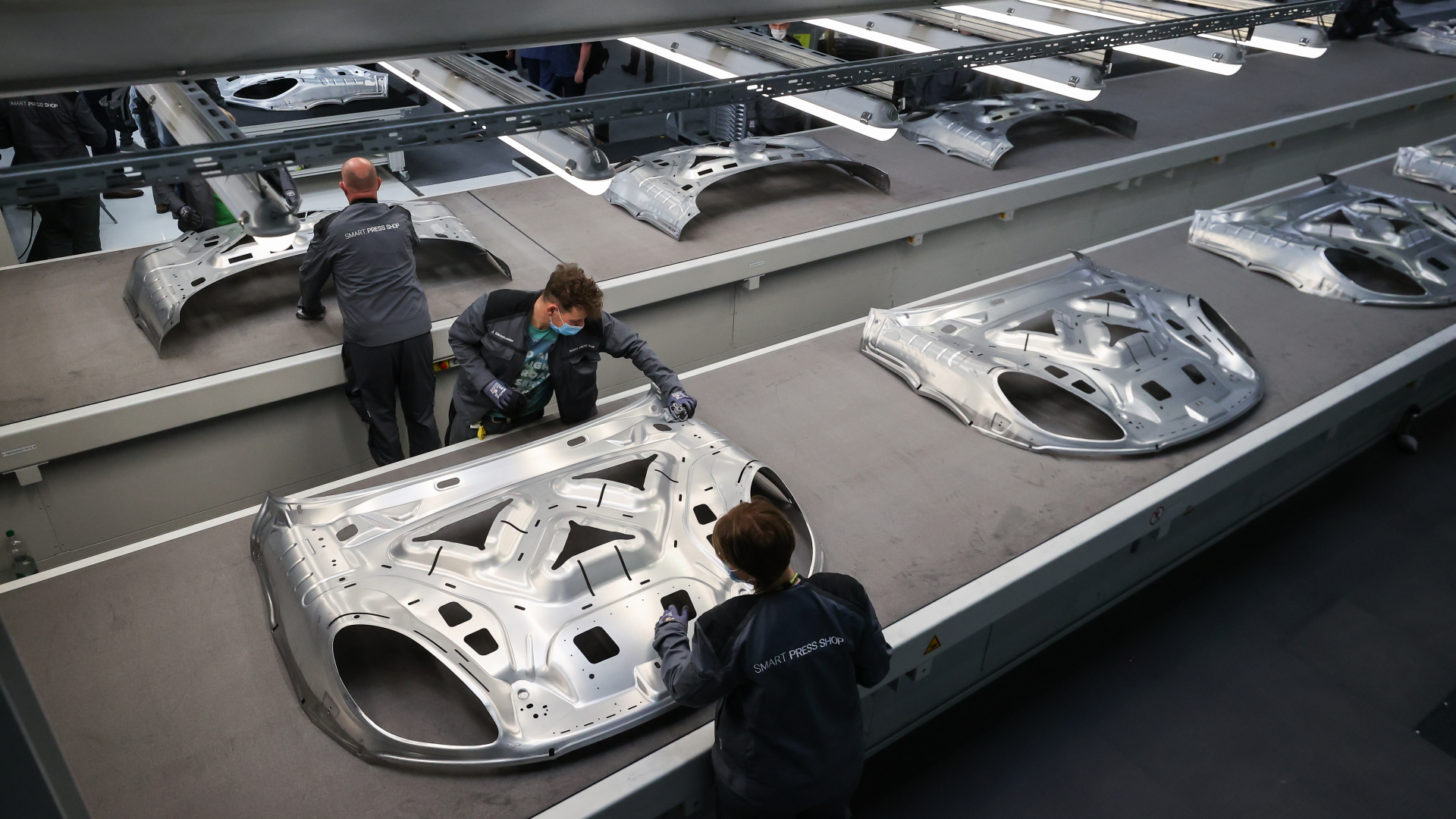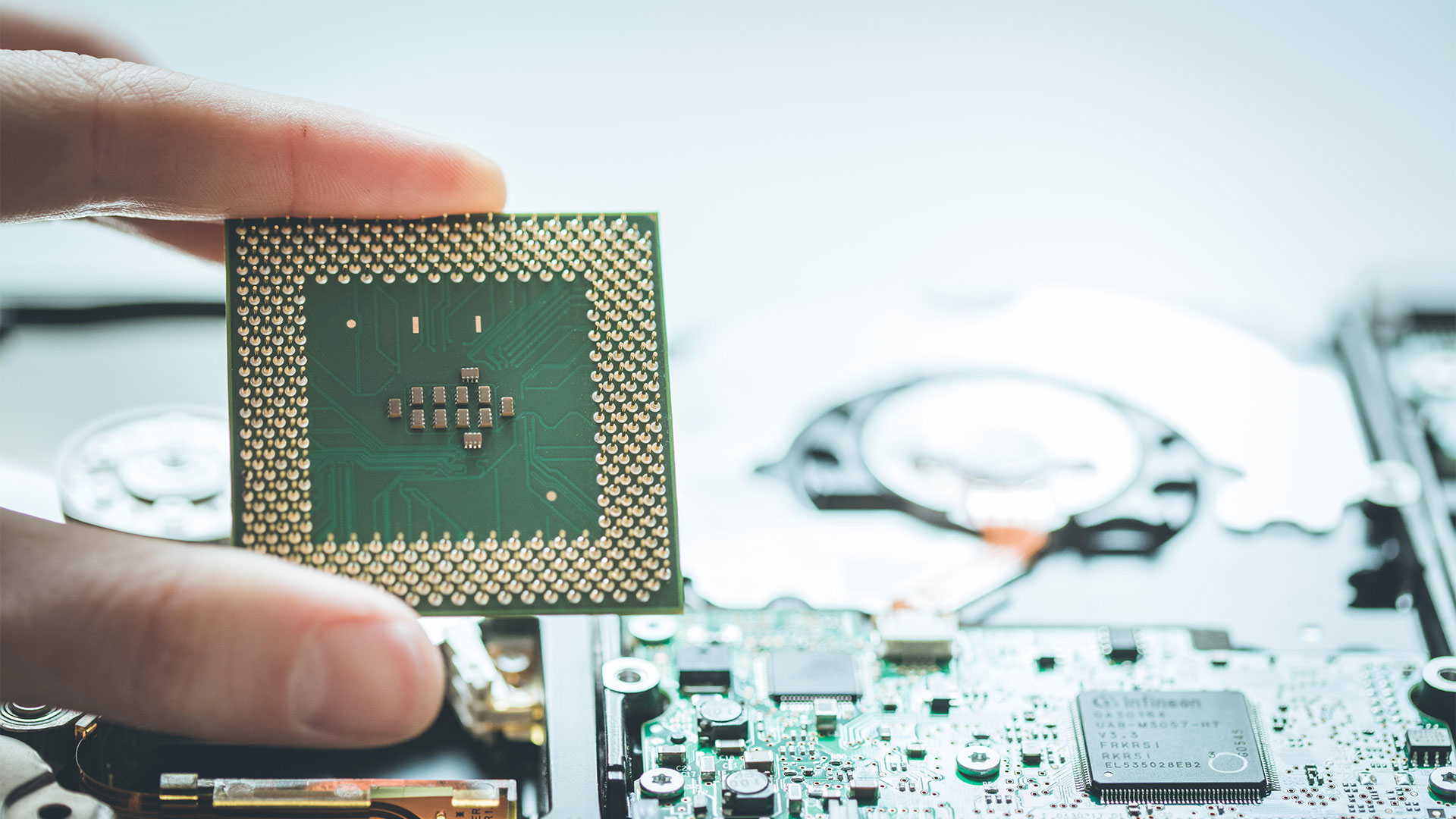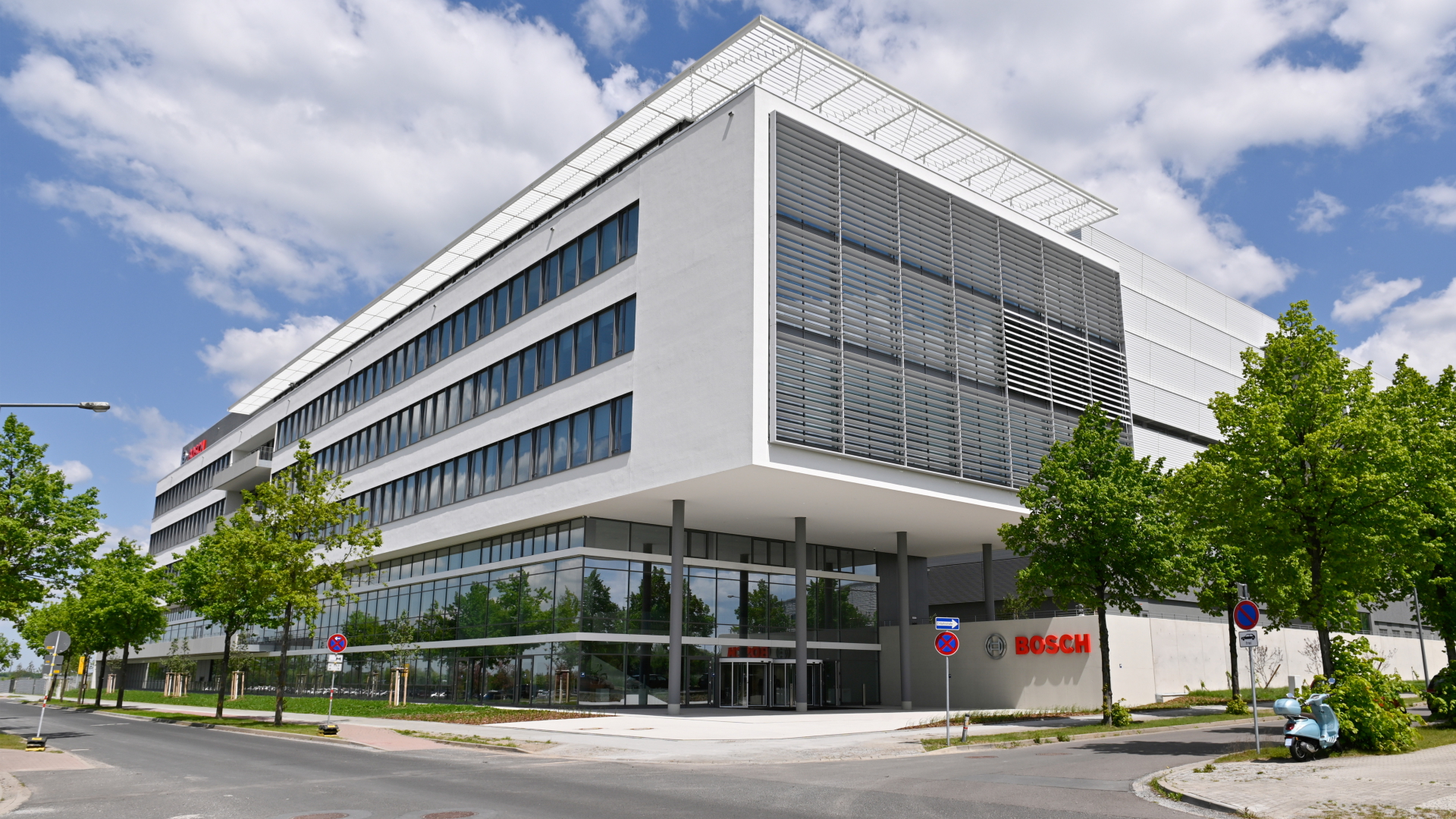
Missing computer chips Short-time work at VW and Daimler
Status: 16.06.2021 10:23 a.m.
Time and again, the production lines in car plants stand still – the manufacturers refer to the industry-wide shortage of chips. Now it hits Volkswagen and Daimler again. When will the situation improve? From Angela Göpfert, tagesschau.de There will be stoppages in the coming week at the VW main plant. In the Tiguan, Touran and Tarraco production as well as in the Golf production in the late and night shifts, the Wolfsburg switch to short-time work. In the Daimler plants in Bremen and Rastatt, short-time work is already the order of the day. The reason is once again the industry-wide shortage of chips.
Production drops slightly A lack of material slows down industry The scarcity of intermediate products is leaving its mark on German industrial production.
Interruptions cost billions
It is nowhere near the first time that the shortage of semiconductors has slowed automakers’ production. It was not until the end of May that the VW luxury subsidiary Audi at the Ingolstadt and Neckarsulm locations suffered production interruptions. BMW had been hit a few weeks earlier. The Ford plant in Cologne is also affected. The German auto industry is not alone with its problems: The US auto giant Ford calculates charges of around 2.5 billion dollars this year due to the lack of chips. The problems in the automotive industry have consequences for the entire economy. Just today, the researchers at the Munich Ifo Institute lowered their forecast for the growth of the German gross domestic product this year from 3.7 to 3.3 percent. To justify this, they also referred to bottlenecks in the delivery of intermediate products such as semiconductors.
Improvement in the third quarter?
It could take a few more weeks for a change for the better. According to experts, the automotive industry is heading for the lowest point. “We are facing the toughest six weeks,” said Murat Aksel, VW Board Member for Purchasing, recently in an interview with the “Handelsblatt”. The situation should improve again in the third quarter. Competitor Daimler also expects an improvement in the second half of the year. The Boston Consulting Group (BCG) also estimates that the situation should ease from July.
Around four million cars less
Because of the lack of chips, automakers worldwide produced 1.4 million fewer cars in the first quarter and 1.6 million in the second quarter, the BCG experts calculate. For the entire year 2021, the failures are likely to amount to four to six million vehicles.
Semiconductor alliance planned How the EU intends to fix the chip shortage Missing semiconductor components are slowing down car production worldwide.
The consulting firm Alix Partners in Munich estimates 3.9 million cars. This corresponds to a value of non-produced cars of around 91 billion euros.
Lessons from the shortage of chips
The car manufacturers have long since learned their lessons from the shortage of chips: They are carefully reviewing their supply chains and are not only expanding their warehousing for chips. After all, the supply chains have thinned out after a pandemic for more than a year, even for important intermediate products, for example in the chemical industry.
Persistent lack of chips Bosch opens chip factory in Dresden The automotive supplier Bosch will be prepared for the next chip crisis.
Security of supply is suddenly a priority again after years of just-in-time delivery. Chip manufacturers are also taking strong countermeasures and are pushing ahead with expanding their capacities at full speed. In Germany, the new high-tech chip factory from Bosch ensure regional supplies.
Misjudgments as the cause
But how did it come to that? Where does this lack of chips come from, which is currently keeping the auto industry and its employees in suspense? With the outbreak of the corona pandemic, demand for cars collapsed and chip manufacturers cut their production plans.
Current study Auto industry over again Pre-crisis level More sales and higher operating results than before the crisis: The global auto industry has left the corona pandemic behind.
When the demand for new vehicles suddenly increased surprisingly in the summer of 2020, chip manufacturers such as Infineon or NXP were overwhelmed by the demand. The current chip shortage is therefore based on a whole series of misjudgments – on the part of car manufacturers and suppliers, but also on the part of chip manufacturers. The lack of chips also shows that the auto industry did not come through the Corona crisis as badly as feared.

























































 06/08/2021
06/08/2021 05/04/2021
05/04/2021 06/07/2021
06/07/2021 05/31/2021
05/31/2021



You must log in to post a comment.